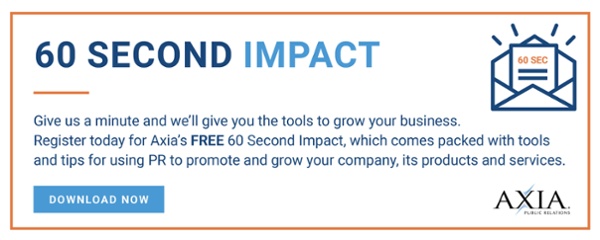To improve your company's SEO, leverage media placements to build credible backlinks, anchor text, and website authority.
 As a PR professional, you may not consider yourself a search engine optimization expert. By understanding some basics, however, you can leverage your media relations skills to help boost your brand’s SEO — driving more qualified traffic to your site and positioning you as an authority in your space.
As a PR professional, you may not consider yourself a search engine optimization expert. By understanding some basics, however, you can leverage your media relations skills to help boost your brand’s SEO — driving more qualified traffic to your site and positioning you as an authority in your space.
Start by identifying priority keywords
Work closely with your SEO and content colleagues and ask them what keyword phrases potential customers would likely use to search for your products or services. Another easy way to generate a list is to compile common questions you receive from prospects and identify shared words or themes.
Once you have a broad list, plug phrases into Google's Keyword Planner to assess search volume and competition. Focus on moderately searched phrases with low competition — overly competitive phrases will be tough to rank for, especially for a newer domain without much authority.
Evaluate the competitive landscape
Search your target keyword phrase in Google and make a list of domains ranking on the first 1-3 pages. Using a MozBar browser extension, you can view each site's domain authority. Compare them to your own site's authority (using the same tool) to determine who you can reasonably "compete" with.
You can likely compete with sites ranking 15 points higher than you in domain authority. This analysis will inform your outreach target list.
Pitch strategically
Focus pitches on outlets already ranking well for your phrase, ideally with higher domain authority than you. Getting placements on these credible, topically relevant sites will signal to search engines that you are an authority on the topic too. These higher-ranking sites essentially pass on their authority to your website when you receive a “dofollow” backlink from them.
Not all outlets will offer “dofollow” backlinks. Some will only offer “nofollow” backlinks or no backlinks at all. While you won’t get the trickle-down of authority from these articles, they are still an important part of building your authority and brand recognition.
Secure backlinks and anchor text
The goal is to secure backlinks: strategic mentions of your brand name that link to your site. This signals to search engines that others view you as an authority. Anchor text (the visible, clickable words in a link) is also important. Try to have anchors use your target keyword(s).
For best results, link to deeper content focused on the topic, not just your homepage. Think blog posts, reports, videos, or other content you're positioning around the phrases.
Track and measure
Use Google Analytics to view which publishers drive the most referrals and dig into visitor behavior. Are people sticking around and browsing more pages from certain link sources?
Most importantly, watch your organic rankings on target phrases week over week. With persistence and the right media placements, you can move the needle on keyword rankings and site visibility by aligning PR and SEO efforts.
Our team at Axia PR can help you gain these valuable links and articles to improve your SEO and increase your brand authority and awareness. Contact us today to find out how we can help you.
Photo by Kampus Production
Topics: media relations, SEO


Comment on This Article